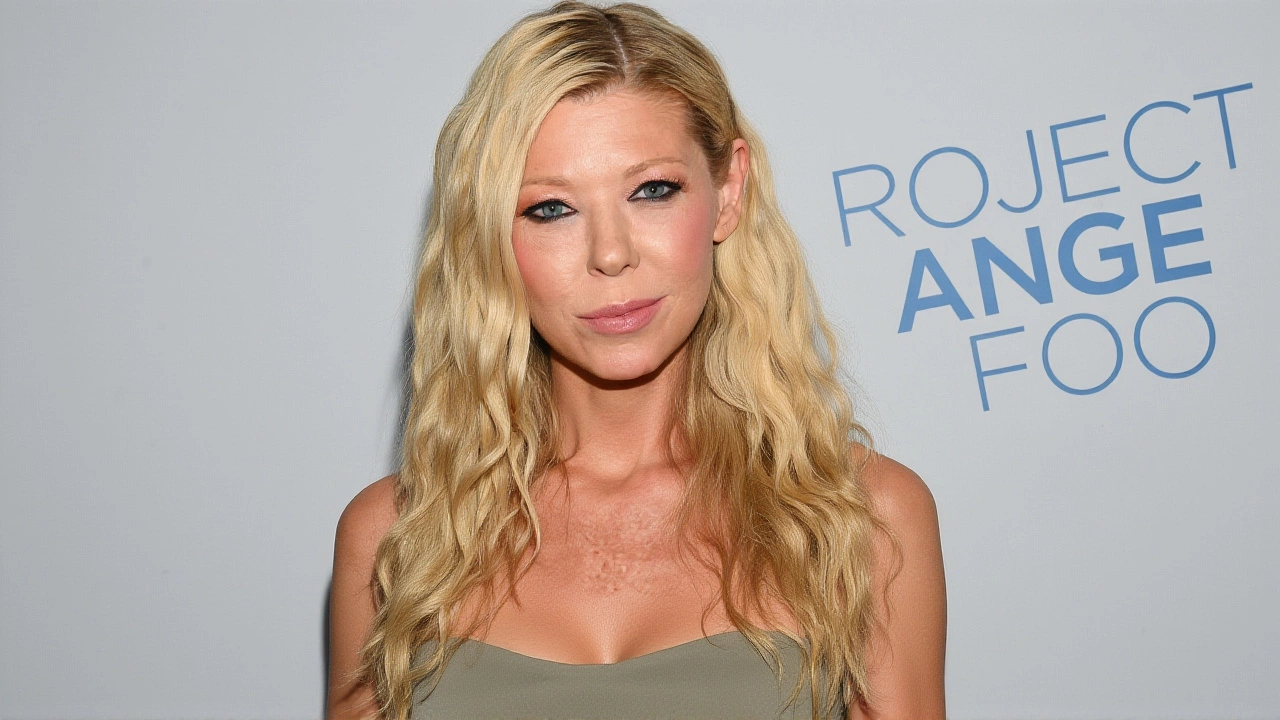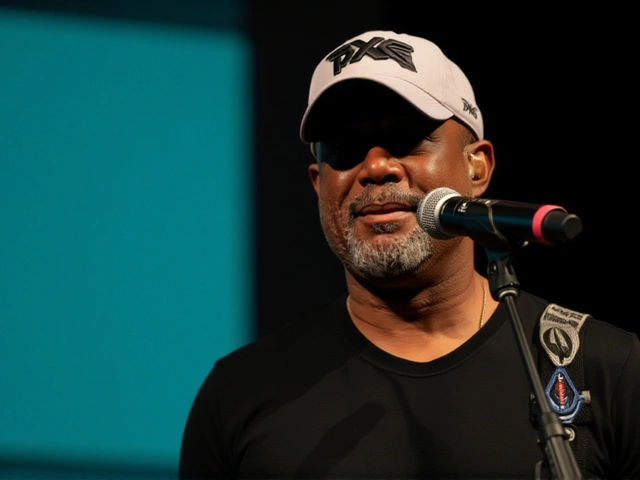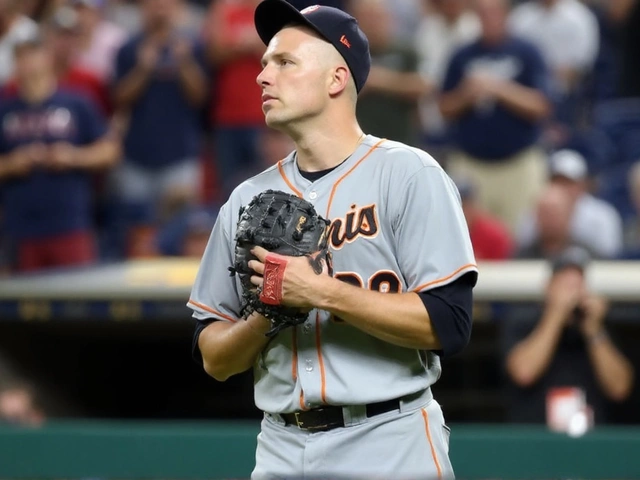
When Tara Reid appeared in a new interview clip shared on the Back to the Best podcast’s TikTok account on May 17, 2025, fans didn’t just notice a change—they were stunned. The 49-year-old actress, best known for playing Vicky Lathum in the 1999 cult comedy American Pie, looked radically different from the fresh-faced, cheeky co-star who once defined a generation of teen films. Within hours, comments flooded in: ‘I hope she is ok,’ ‘Wow, she looks so different,’ and ‘Is she alright?’ The clip, pulled from an interview recorded at an unknown date, reignited a conversation that’s followed Reid for over two decades: how society fixates on a woman’s appearance long after her peak fame.
Why This Resonates Now
It’s not just about looks. It’s about how the media treats women in Hollywood—especially those who rose to fame young. Reid, born Tara Holland on November 8, 1975, in Wyckoff, New Jersey, was 24 when American Pie premiered on July 9, 1999. The film, produced by Universal Pictures and directed by Paul Weitz, became a cultural touchstone. But fame came with a price: constant public commentary on her body, her weight, her choices. Now, 25 years later, that same scrutiny has resurfaced—not with a tabloid headline, but through a 60-second TikTok clip.
What’s different this time? The platform. TikTok doesn’t just report news—it amplifies emotion. And emotion, in this case, was a mix of concern, nostalgia, and outrage. Fans who grew up watching Reid in American Pie and its sequels now see a woman who’s lived through public judgment, industry neglect, and personal struggles. Some defended her: ‘She was great in those movies. Good for her for still going.’ Others, more cruel, made memes. The silence from her representatives speaks volumes.
Reid’s Response: ‘Leave Me Alone’
Reid didn’t wait for the TikTok wave to crash before speaking up. In an earlier interview with The Los Angeles Inquisitor, she directly confronted the rumors that have haunted her: ‘I have no anorexia and never have,’ she said. ‘And I definitely don’t have any bulimia. I’m terrified of throwing up, so that’s not going to happen. And I love food too much.’
She didn’t stop there. ‘Anyone that says I’m anorexic or bulimic, they’re wrong. Leave me alone. Pick on me for something else, but not on those two things.’ That line—raw, tired, defiant—isn’t just a rebuttal. It’s a cry of exhaustion. For 25 years, she’s been reduced to her body in headlines, talk shows, and now, algorithm-driven clips. ‘It’s frustrating when people still say these things after all these years,’ she added. ‘It becomes part of a narrative that’s impossible to shake.’
That narrative? The myth that a woman’s worth in Hollywood fades with her youth. Or worse—that her appearance is a moral failing.
The Bigger Picture: A Pattern, Not an Anomaly
Reid’s story isn’t unique. Think of Lindsay Lohan, Winona Ryder, or even Drew Barrymore—women who exploded into fame as teens and then faced relentless scrutiny for their weight, their choices, their ‘downfalls.’ The difference? Reid never fully disappeared. She kept working. She took roles in indie films, reality TV, even direct-to-video sequels. She didn’t vanish because she was ‘too much’ or ‘too little.’ She was just… human.
And yet, the world still feels entitled to comment. The Back to the Best podcast didn’t set out to cause a storm. They simply republished an old interview. But in the age of viral content, old footage becomes new trauma. Viewers don’t see a woman who’s aged—they see a ‘before and after’ meme. And that’s the real tragedy.

What’s Next for Tara Reid?
Reid hasn’t announced new projects. No press tour. No Instagram post. She’s not obligated to explain herself. But her silence speaks louder than any statement could. The entertainment industry has moved on—from teen comedies to streaming algorithms, from DVD sales to TikTok trends. Yet Reid remains, quietly, stubbornly, present.
She’s not asking for pity. She’s asking for respect. And maybe, just maybe, this moment—this viral clip, this flood of comments—will force us to ask: Why do we still do this? Why do we reduce women to their bodies, decades after they’ve earned their place in culture?
Reid didn’t lose her fame. We stopped seeing her as a person.
Behind the Scenes: The Interview That Went Viral
The original interview with The Los Angeles Inquisitor was conducted months before May 17, 2025, but its timing couldn’t be more telling. It was released just as public discourse around aging actresses was heating up—following similar conversations about Jennifer Aniston, Michelle Pfeiffer, and even Meryl Streep. The clip’s virality isn’t random. It’s a symptom.
What’s striking is how little context the Back to the Best podcast provided. No date of the original recording. No interviewer’s name. No explanation of why this clip was chosen. Just a 60-second snippet, stripped of nuance, left to be interpreted by strangers on a platform built for outrage.
That’s the real story here: not Tara Reid’s appearance—but how we consume it.
Frequently Asked Questions
Why is Tara Reid being criticized for her appearance now?
The backlash stems from a May 17, 2025, TikTok clip of an older interview, where Reid’s current appearance contrasts sharply with her 1999 American Pie look. Social media often reduces aging women to visual comparisons, ignoring context, health, or personal journey. This isn’t new—it’s a pattern repeated with countless female celebrities over decades.
Has Tara Reid spoken about her health publicly?
Yes. In an interview with The Los Angeles Inquisitor, Reid firmly denied rumors of anorexia or bulimia, stating, ‘I’m terrified of throwing up, so that’s not going to happen. And I love food too much.’ She emphasized that these false narratives have followed her for 25 years and are both hurtful and inaccurate.
What impact has this had on her career?
Despite ongoing scrutiny, Reid has continued working in film, TV, and reality shows since the early 2000s, though she’s largely shifted away from mainstream Hollywood. She hasn’t landed a major role since the mid-2010s, a common fate for women who don’t fit narrow industry standards. Her persistence, however, remains remarkable.
Is the Back to the Best podcast responsible for this controversy?
No—the podcast merely republished existing content. The real issue lies in how social media algorithms prioritize emotional, sensational clips over context. The outrage was manufactured by viewers, not the podcast. Still, media outlets bear responsibility for what they amplify without ethical framing.
How does this reflect broader issues in Hollywood?
This incident mirrors decades of systemic sexism in entertainment: women are valued for youth and beauty, then discarded or mocked as they age. Men like Tom Cruise or Harrison Ford face no such scrutiny for aging. Reid’s case is a stark reminder that the industry still treats female bodies as public property.
What can fans do to support Tara Reid?
Stop commenting on her appearance. Instead, celebrate her work—American Pie, Alone in the Dark, her reality TV appearances. Support her projects if she releases any. And challenge others when they reduce her to a ‘before and after’ meme. Real support means seeing the person, not the pixels.


